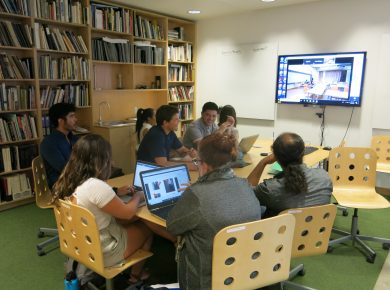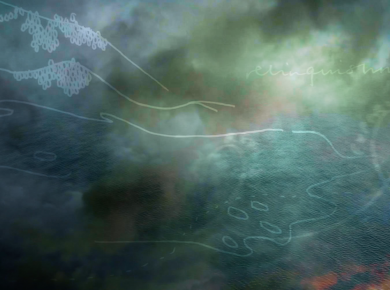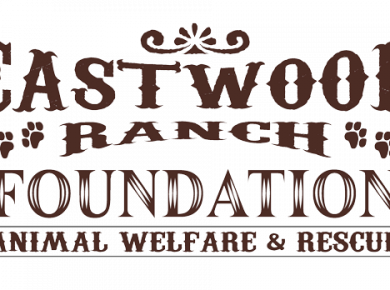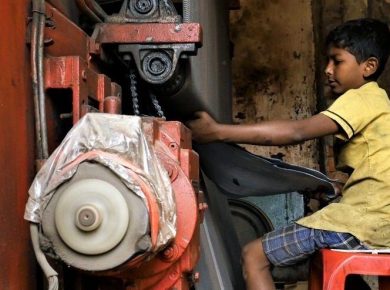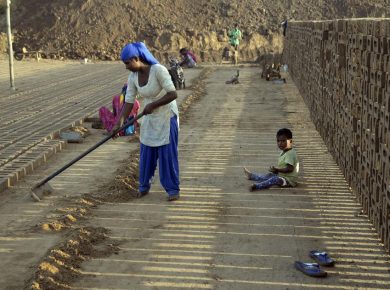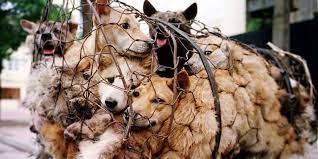In September, 2020, former livestock vet Dr Alice Brough stood up in front of the Department of Environment, Food and Rural Affairs to deliver a searing account of her years in the British pig industry. She has over a decade of direct involvement in practices that are “not only drawing us closer to the climate emergency, but create human pandemics, global health crises, and bring us ever closer to antibiotic resistance, a manmade disaster forecast to kill 10 million people by 2050.” Watch the full speech above – or read it below.
“Picture this. I pick up an emergency call: “Alice, I’ve had 30 certain pigs die overnight. Can you come out?” Arriving on the farm, I’ll take a look around. And I might take some samples from live pigs before I look at the dead animals. So leaning down, nose to snout, with a screaming pig on the end of a snare, I might take blood from the jugular vein. I might swab the nasal passages or the tonsils, much like a Covid test. And the pig’s probably breathing, coughing, sneezing into my own eyes, nose and mouth.
Onto the dead ones. Post mortem exams are probably something I performed most days during my four years in the pig industry. I don’t know at this point what has killed those 30 animals. I don’t know whether the random mutations constantly ongoing in viruses and bacteria have mutated in such a way that this can pass to me. This can kill me. Every day is a roulette.
Three in four – 75% – of new and emerging diseases in humans come from animals. They’re zoonotic. And there are viruses in livestock that can wipe out an entire herd – 100% mortality. One such virus in China wiped out 50% of their industry over the last couple of years. That equates to the entire world’s population of pigs put together in two years. Imagine if that jumped hosts. There are viruses that make mothers abort or give birth to deformed babies. There are viruses in poultry – our most consumed animal globally and in the UK – that have a 30% to 60% mortality. There are influenza viruses so common, so diverse, that mutate so quickly, we have to update human vaccines every year.
The worst pandemic known to man was an influenza virus thought to have originated on a US poultry farm: the Spanish flu. It killed 50 million people. We have got off – and I cannot stress this enough – incredibly lightly with COVID-19.
It has an approximate mortality rate of 0.5%. To give you a bit of context, the average mortality rate pre-weaning in pigs in this country is 12%. Post-weaning to slaughter at six months is a further 4%. Scale that up to a global human population, that is 1.2 billion deaths annually – before adulthood.
Most days, I was putting mass treatments of antibiotics through water systems and signing off medicated feed scripts. Because the only things that would suffer if I was not to do that would be the pigs. They require these antibiotics to survive a hideous system of our making. Animal farms are perfect breeding grounds for disease, perfect for cultivating pandemics and antibiotic resistance.
This is not a Chinese problem. This is not something from which Britain is exempt. To help you envisage where the problem might lie in this country, legal – and in fact Red Tractor – standard space requirements for a pig of 110 kilos, which is standard slaughter weight, is 65 centimetres squared. That is the total space to eat, drink sleep socialise urinate and defecate. This is why we’re in an antibiotic crisis. What you see plastered all over the news and farm exposes represents the majority, rather than the minority. Check out Viva Animal Equality, and you’ll see where the problem lies.
And it’s getting worse rather than better. JBS, a Brazilian meat giant, now owns around 30% of the UK pig and poultry markets. What do you think those animals are being fed? Pigs and poultry, our most consumed animals, don’t eat grass. They eat soya, grown in the ashes of a destroyed Amazon rainforest. They eat grains, pulses, beans, perfectly balanced vitamins and minerals. Fish meal: around 20 million tonnes, annually, of fish, are ground up and fed to livestock and farmed fish. The animals that we use have been manipulated to such an extent that they are now Frankenstein monsters. Pigs grow at over a kilo a day in their peak; chickens reach slaughter before six weeks old, unable to walk. A lactating mother pig will eat up to 16 kilos of high quality feed a day and a lactating dairy cow will drink over 150 litres of fresh water every single day. We drink about two. Meanwhile, 800 million people are malnourished: 8,000 children are starving to death every day.
But somehow, we provide adequate nutrition, fresh water and comprehensive health care to the 76 billion land animals that we slaughter every year.
It’s an abomination.
This is a human rights issue, as well as animal rights, and an ecological issue. If we care about monocropping, pesticides, bees, soil structure, the general continuation of the human race, animal agriculture is where we need to start looking for answers. JBS produces half the carbon emissions of fossil fuel giants like Shell and BP. And there are some strong parallels to be drawn to the fossil fuel industry.
Forty years ago, scientists were trying to tell us that they were causing climate change. But, when big companies are financially threatened – and just as an example, the pig industry in the UK is worth 14 billion pounds – they turn their millions into covering it up, to producing confusing contradictory information, funding dodgy studies and media articles. Think how many different headlines we’ve seen on red meat and cancer, for example. Back in July, the UN tweeted that “the meat industry is responsible for more greenhouse gas emissions than the world’s biggest oil companies. Meat production contributes to the depletion of water sources and drives deforestation.” That received such a violent backlash they took it down. The United Nations bullied over a tweet: that is how powerful the meat industry is.
Last week, I received my usual email updates from Pig Progress publication. The headline was: “If there weren’t enough challenges, already soon pig producers in Europe will also face the US Green Deal.” That says it all. There is a reason why Greta Thunberg with her motto of ‘listen to the science’ is vegan. There is a reason that David Attenborough just publicly called for everyone to adopt a more plant-based diet.
I urge you to think about what it is preventing us from removing these very real and completely unnecessary risks to human health and planetary health. Is it our own pleasure, tradition or is it just something we’ve always done or been told to do? Who is it that is instilling these values in us? Is that the industry is trying to sell a product? Is it the government, lobbied by those very industries? Is it the media? Can we trust any of them to tell the truth?
This is not blaming and shaming. This is me saying it’s time to join the dots, to pick through the carefully constructed lies that we’re fed and take back control. Even if you don’t care about the unfortunate few species that we’ve enslaved for our own use, though I can tell you that it is heart-stoppingly awful to witness what we do to them, we care about wildlife, natural ecosystems and about human life. Human and animal rights are inextricably linked. And it goes deep.
During this pandemic, we’ve been offered a view into the lives of slaughterhouse workers. Often marginalised members of society, people of colour, migrant workers: those who don’t have any other option but to put on the diaper – literally, nappies – and stand on a kill hour after hour, knowing that hundreds of their workmates have been disproportionately affected by the pandemic. “Go to work or you’ll lose your job, but also go to work and you might die.” This is why we need a just transition to a plant based food system.
We simply cannot address the climate and ecological emergency without first taking this step to a transition. We cannot address address injustice and oppression, without taking a long hard look at the great big fucking elephant in the room. I’ll leave you with one question. Why take the risk?
We rely on planetary health. We rely on the health of the animals inhabiting this planet. We are the animals. We listen to the science on fossil fuels and climate change – that’s part of our ethos. And we know that they lied to us for years, decades of cover up. We now know that animal agriculture are doing the exact same thing. Undeniably, the largest driver of climate change and the ecological emergency – undeniably barbaric for the animals, and for humans. We’re in this pandemic mess because of it and we know we’re going to see the end of medicine as we know it if we don’t act now.
So why take the risk when we have the power to bring it to its knees? And this is it. This is the message. We want to live.”

